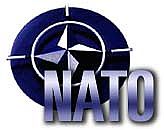NEWS FEATURE: Europe seeks a stronger role as NATO turns 60
 Strasbourg, France - While overshadowed by talks about Afghanistan and Russia, France's return to NATO's military command structure is a defining event of the alliance's summit being held Friday and Saturday in France and Germany.
Strasbourg, France - While overshadowed by talks about Afghanistan and Russia, France's return to NATO's military command structure is a defining event of the alliance's summit being held Friday and Saturday in France and Germany.
The decision by French President Nicolas Sarkozy to return his country to full NATO membership may not change a great deal for France in practice, since Paris has participated in all NATO conflicts, including the war in Afghanistan.
But it has enormous symbolic significance for the future of the alliance.
An advisor to Sarkozy suggests the move will usher in what he calls "the Europeanization of NATO", after 60 years of American pre- eminence.
One reason is that the balance of power within the alliance will likely undergo a seismic shift.
A French general is widely expected to be given one of the top two NATO command posts, the Allied Command Transformation project, which has its headquarters in Norfolk, Virginia.
If confirmed later this spring, it would mark the first time that a top NATO command has been given to a European country.
In addition, France and Italy are likely be accorded leadership of the NATO regional command in Lisbon, Portugal, which would put two of the alliance's three regional commands in European hands.
Many Western officials and analysts also view Sarkozy's decision as a signal to the world that Europe is serious about developing a strong, independent defence.
"France's return to NATO's military command structure represents the emergence of Europe as an important actor in international security," says a French diplomat.
Sarkozy himself said as much when he announced last month his intention to override Charles de Gaulle's 1966 decision to take France out of NATO's military command so that Paris could become a neutral bridge between the former Soviet Union and the West.
"When France takes its rightful place in NATO, Europe will have more of a say in the alliance... and European defence will be stronger," Sarkozy said.
On Friday, after arriving in Strasbourg to take part in the summit celebrating the alliance's 60th birthday, US President Barack Obama said a stronger Europe was good news for both the United States and the alliance.
"We would like to see Europe have more robust defence capabilities," Obama said after talks with Sarkozy. "We are not looking to be patrons of Europe; we are looking to be partners of Europe."
Obama went on to say, "The basic premise of NATO was that Europe's security was also US security, and vice versa. This is a pillar of American foreign policy."
If Europe played a more prominent role in NATO, that principle "will continue to be upheld," the US president added.
Ironically, the shift in the balance of power within NATO comes at a time in which Obama risks increasingly Americanizing the war in Afghanistan.
His plan is to increase American troop strength there from the current 38,000 to 68,000 by the end of 2009. That means that American fighting soldiers deployed in Afghanistan will outnumber allied troops by about two to one.
The fact that this has not yet led to open tension is the consequence of what one French official calls Obama's "spirit of openness."
"There is a more more collective approach," the official says. "We have turned the page of Iraq."
However, the question remains of how long Europe will be able to take on more responsibility within NATO as the number of US fatalities in Afghanistan mounts.
United States National Security Advisor James Jones said more allied troops would be needed particularly in the summer, when Afghans go to the polls to vote on whether to renew the mandate of President Hamid Karzai.
"I expect there will be additional troop contributions," Jones said. dpa